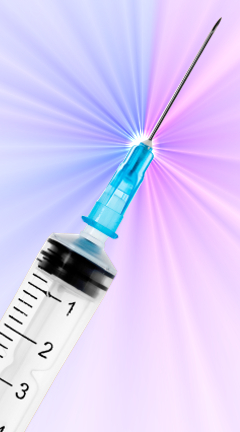Samoa sees major outbreak
 A measles outbreak in Samoa has infected 3,000 people out of a population of 200,000.
A measles outbreak in Samoa has infected 3,000 people out of a population of 200,000.
The disease has been ravaging the tiny south Pacific of Samoa for over a month, killing 42 people so far.
Thirty-eight of the dead were children under the age of four.
Measles - the world’s most infectious disease - has spread throughout much of the developed world this year.
In Samoa, the disease hit a population with devastatingly low vaccination rates and a health service ill-equipped for the challenge.
The WHO estimates Samoa’s total population immunity is as low as 30-40 per cent, while its Pacific neighbours like Tonga and American Samoa boast immunisation rates of over 90 per cent.
The immunisation rate of Samoan babies has plummeted sharply after a scandal in 2018 when two Samoan nurses administered MMR vaccines to babies who subsequently died.
This destroyed trust in the government and immunisation programs, leading to the situation now where only 31 per cent of children under five are vaccinated.
Australian doctor Dan Holmes says the disease brings on added complications like pneumonia.
“There is undoubtedly a chance that there is a burden on those children who have had those very severe infections, that they will go on to have some more problems in the future,” he told the Samoa Observer.
Health authorities were slow to respond when measles, waiting until several weeks after the outbreak, after 200 suspected cases were confirmed and one child had died, to declare the country is facing an emergency.
It was not until a month later, on 15 November with the death toll 16, that the government declared a national state of emergency.
Since then, vaccinations became mandatory and a mass campaign has seen dozens of immunisation stations set up inside church halls, primary schools, and even one outside a supermarket.
Mobile clinics carrying nurses with megaphones have been driving around the country to boost vaccination rates, while police have been deployed to keep the peace at vaccination clinics.
The state of emergency has banned people under the age of 19 from public gatherings, closed schools and left many exams and prize-giving ceremonies cancelled.
Local shops and market stalls are closed, while many have cancelled flights home to Samoa for the Christmas season.
Pharmacies report selling out of hand sanitiser and surgical masks.
Nearly 100 extra medical personnel have just arrived from Australia, New Zealand, French Polynesia and the United States, while hundreds of thousands of vaccines have been shipped from New Zealand and the United Nations Children’s Fund.
But they will face an immense task, with resistance from Samoan online influencers peddling alternative “cures” like vitamins and special Japanese water.
A major social media influencer and the wife of a Samoan rugby league player has likened Samoa to Nazi Germany for its mandatory vaccination program.
Many locals are also turning to Samoan traditional healers who use remedies like tea leaves, which may reduce fever, but do not treat the actual virus.
Samoa’s director general of health, Take Naseri, is trying to get people to come to the hospital first.
“When people are desperate, they look for other ways to get assistance and we cannot stop that right of people to choose where they want to go,” he said.
“We give them all the information so they have an informed decision, and that is the very difficult part.”








 Print
Print